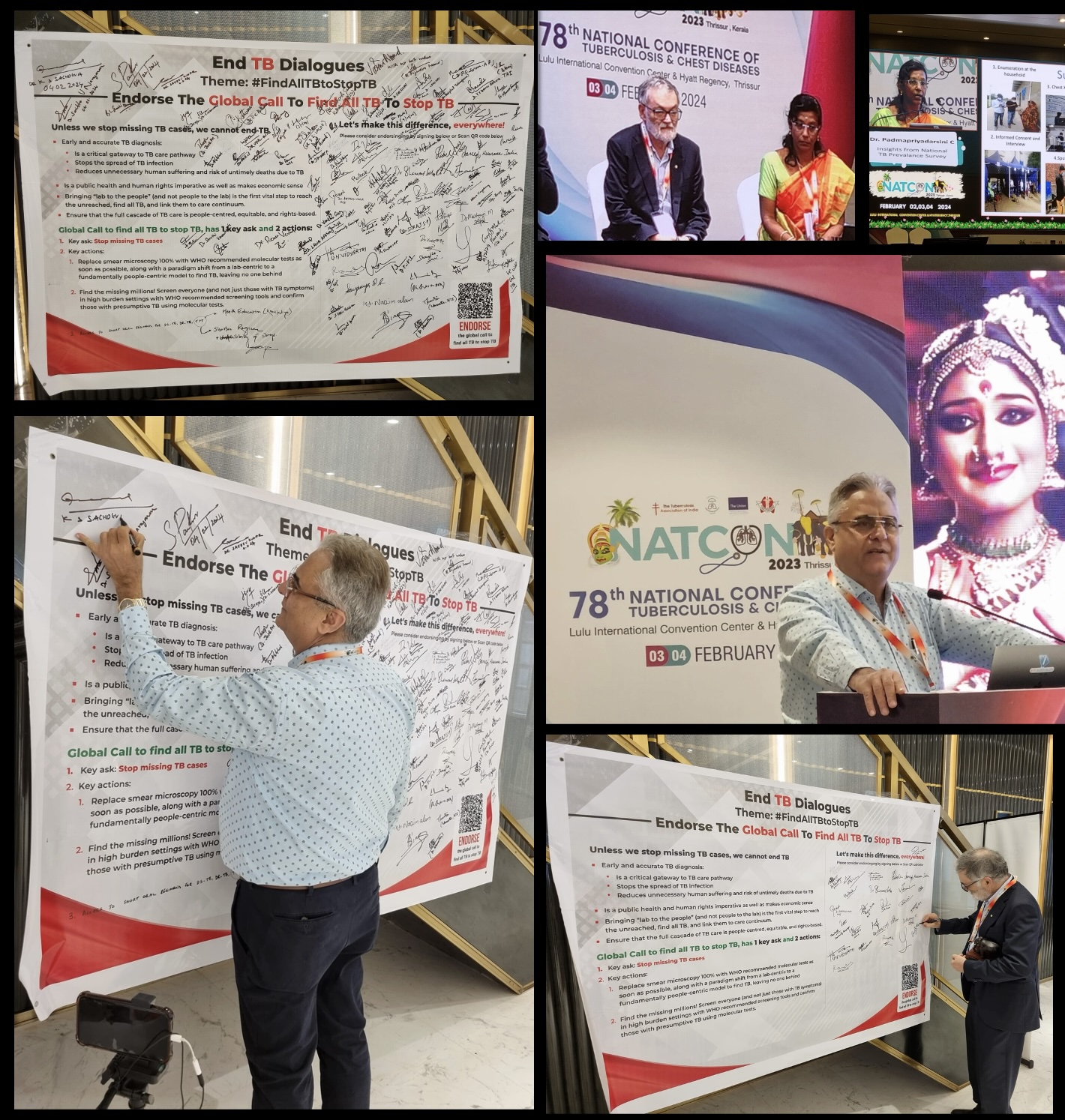Is it not a paradox that a preventable, diagnosable, treatable, and curable bacterial infection disease is still 1.30 million people every year. Yes we are talking of TB. Today we have all the solutions to #EndTB - point-of-care molecular tests to diagnose drug sensitive and drug-resistant TB upfront within an hour or so, and begin patient-friendly shorter treatment regimens ("same day test and treat") to get rid of this dreaded disease. And yet in 2022, an estimated 10.6 million people developed TB globally, out of which 410,000 cases were of drug-resistant TB. Moreover only less than half of those with drug-resistant TB (43%) were able to access treatment.
The treatment of drug-resistant TB has undergone a rapid change. Today we have the six-month all oral treatment regimens, like BPaL and BPaLM.
* BPaLM (Bedaquiline, Pretomanid, Linezolid, and Moxifloxacin) regimen has an efficacy of 89% (regardless of person's HIV status) to treat rifampicin-resistant TB of the lungs, as compared to less than 60% efficacy of the almost 24-month long standard of care regimen.
* BPaL (Bedaquiline, Pretomanid, and Linezolid) regimen too has 89% treatment efficacy for treating people with extensively drug-resistant TB (XDR-TB) and treatment intolerant or non-responsive drug-resistant TB of the lungs.
Those who do not have fluoroquinolone resistance can receive BPaLM regimen and those who are later found to have fluoroquinolone resistance, can be given BPaL regimen.
"Patients in India and other countries are falling ill with drug-resistant TB every day. And they are still being treated for it with older, more toxic and less effective drugs. These patients should not have to wait, they need better treatments today – not one or few years down the line. We have the data and strong scientific evidence to show why shorter, safer, more effective regimens to treat drug-resistant TB be scaled up programmatically. So why not use the newer, less toxic and more effective drugs instead?” says Dr Animesh Sinha, Advisor for Tuberculosis at Médecins Sans Frontières (MSF) or Doctors Without Borders.
These shorter regimens also make economic sense for the people-in-need as well as for the service providers. They cost less because of the reduction in costs of both: drugs cost and associated care “Patients could get back to their normal lives much quicker than those who were on standard of care regimen. There is no reason why they should not be made available at the earliest to all those who suffering from drug-resistant TB," he adds.
Speaking at the 78th National Conference of Tuberculosis and Chest Diseases (NATCON) held in Thrissur, India, Dr Sinha shared the results of implementing BPaL based regimens, outside clinical trials by many countries with a high incidence of drug-resistant TB. Organised by Tuberculosis Association of India, Tuberculosis Association of Kerala, Association of Pulmonologists Thrissur, Academy of Pulmonary and Critical Care Medicine, and Southeast Asia regional office of the International Union Against Tuberculosis and Lung Disease (The Union), the conference theme is "Robert Koch to Robotics."
He gave the examples of Uzbekistan and Belarus which rolled out the BPaLM regimen in 2022. “Till date they have enrolled more than 800 patients on these new regimens, of which over 500 patients have completed their treatment. They have seen a huge success rate of over 92% in these patients treated with the innovative all-oral, 6 month long regimen for drug-resistant TB. The treatment has been safer than the previously used longer regimen and patients have witnessed lesser side effects."
"However, India has not rolled out these regimens as yet. I hear concerns about high levels of resistance to fluoroquinolones in India as a reason for caution. But other countries with even higher levels of fluoroquinolone resistance have rolled out these regimens with great success. Both Uzbekistan and Belarus are countries with high rates of drug-resistant TB and over 20% to 30% of drug-resistant TB patients in these countries have fluoroquinolone resistance. This is in comparison to India where the proportion of drug resistant TB patients with fluoroquinolone resistance is less than 20%. Therefore these new regimens should work as well in India as they do elsewhere,” explained Dr Animesh Sinha.
India has set ambitious targets to end TB. Now, we need to match this optimism with actions on the ground, so that these targets are reachable. Shorter regimens will help not just India but all countries in ending TB and delivering on SDGs, says Sinha.
In its updated guidelines on drug-resistant TB treatment, the World Health Organization (WHO) has recommended programmatic use of the shorter, safer and more effective all oral BPaLM and BPaL regimens in place of the existing longer regimens. But Indian guidelines in sync with the global ones are yet to go public as far as we know.
The shorter duration, lower cost, lower pill burden and high efficacy of these novel regimens should enable much better treatment and treatment outcomes for people with drug-resistant TB, while also helping health systems to provide care for more people. It has a strong Call to Action for rapid expansion in access to the BPaLM/BPaL regimens.
Shobha Shukla – CNS (Citizen News Service)
(Shobha Shukla is the award-winning founding Managing Editor and Executive Director of CNS (Citizen News Service) and is a feminist, health and development justice advocate. She is a former senior Physics faculty of prestigious Loreto Convent College and current Coordinator of Asia Pacific Regional Media Alliance for Health and Development (APCAT Media) and Global AMR Media Alliance (GAMA). Follow her on Twitter @shobha1shukla or read her writings here www.bit.ly/ShobhaShukla)

 TB globally, out of which 410,000 cases were of drug-resistant TB. Moreover only less than half of those with drug-resistant TB (43%) were able to access treatment.
TB globally, out of which 410,000 cases were of drug-resistant TB. Moreover only less than half of those with drug-resistant TB (43%) were able to access treatment.










.jpeg)



.jpg)





.jpeg)

.jpg)





.png)

